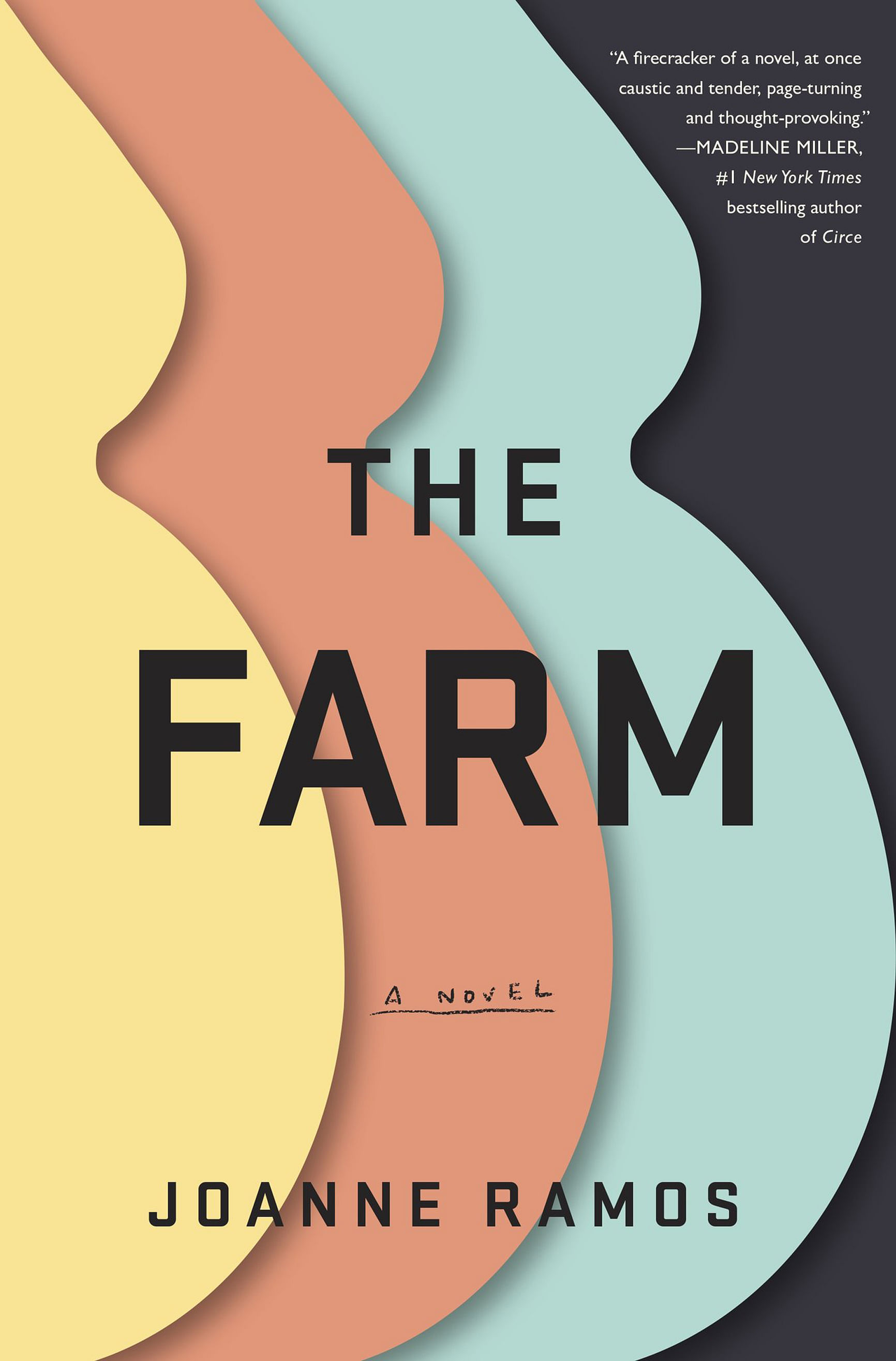SINGAPORE - Would you carry a stranger's child to term for a huge sum of money, even if it meant being estranged from your own?
Joanne Ramos's debut novel The Farm has been described as dystopia, but the Philippines-born American writer says there is nothing futuristic about the scenario of commercial surrogacy she depicts.
Protagonist Jane is an immigrant from the Philippines and a single mother who loses her job as a nanny and is persuaded to apply to Golden Oaks, a luxury facility in tranquil upstate New York where women handpicked for their genetic traits serve as surrogates for wealthy clients who are barren or simply want to avoid the hassle of childbirth.
Referred to ominously as the Farm, it is run with sinister precision by ambitious executive Mae Yu. Hosts are under constant surveillance, with the company dictating what they eat, where they go and whom they see. The slightest complication to the pregnancy could cost a host her baby bonus.
As the months pass, an increasingly distraught Jane begins to contemplate risking the contract to see her daughter.
The book, which took Ramos five years to write, has drawn comparisons to Margaret Atwood's The Handmaid's Tale (1985), a dystopia in which a class of women called Handmaids are forcibly impregnated to salvage falling birth rates.
But Ramos, 46 and married with three children, says that besides some kinds of technology, everything in the book already exists. For instance, India, Thailand, Cambodia and Nepal were commercial surrogacy hotspots until the practice was recently outlawed. It is legal in places such as Ukraine, Russia and the state of California.
As with any issue involving the transactional use of a woman's body, commercial surrogacy is a divisive subject and Ramos' book holds no easy answers.

"I wanted to talk about inequality, immigration and the sacrifices of motherhood," she says over the telephone from her home in New York. "I wanted to lay bare questions on privilege so that people with privilege can consider how they have acted or will act."
Her own relationship with privilege is complicated. Born in the Philippines to a salesman and a housewife, she came to Wisconsin when she was six. A financial-aid student at Princeton University, she was intimidated by her classmates who had attended private schools.
She followed this with a successful career in the male-dominated world of Wall Street, at one point the only female investor at a private equity firm. She was able to balance her career with having her first two children because she hired helpers, some from the Philippines. "I exercised my agency by hiring women who may not have had that agency."
After she left finance and pursued her dream of writing, she drew on conversations she had with Filipina helpers whom she befriended at play dates.
Ramos wonders: "Does meritocracy and the system in America work well enough for women like them, mostly single mums who work their butts off for their kids? Will their kids make it? Because even if their mothers are doing everything right, there is so much working against them."
The Farm ($27.82) is available at Books Kinokuniya.



